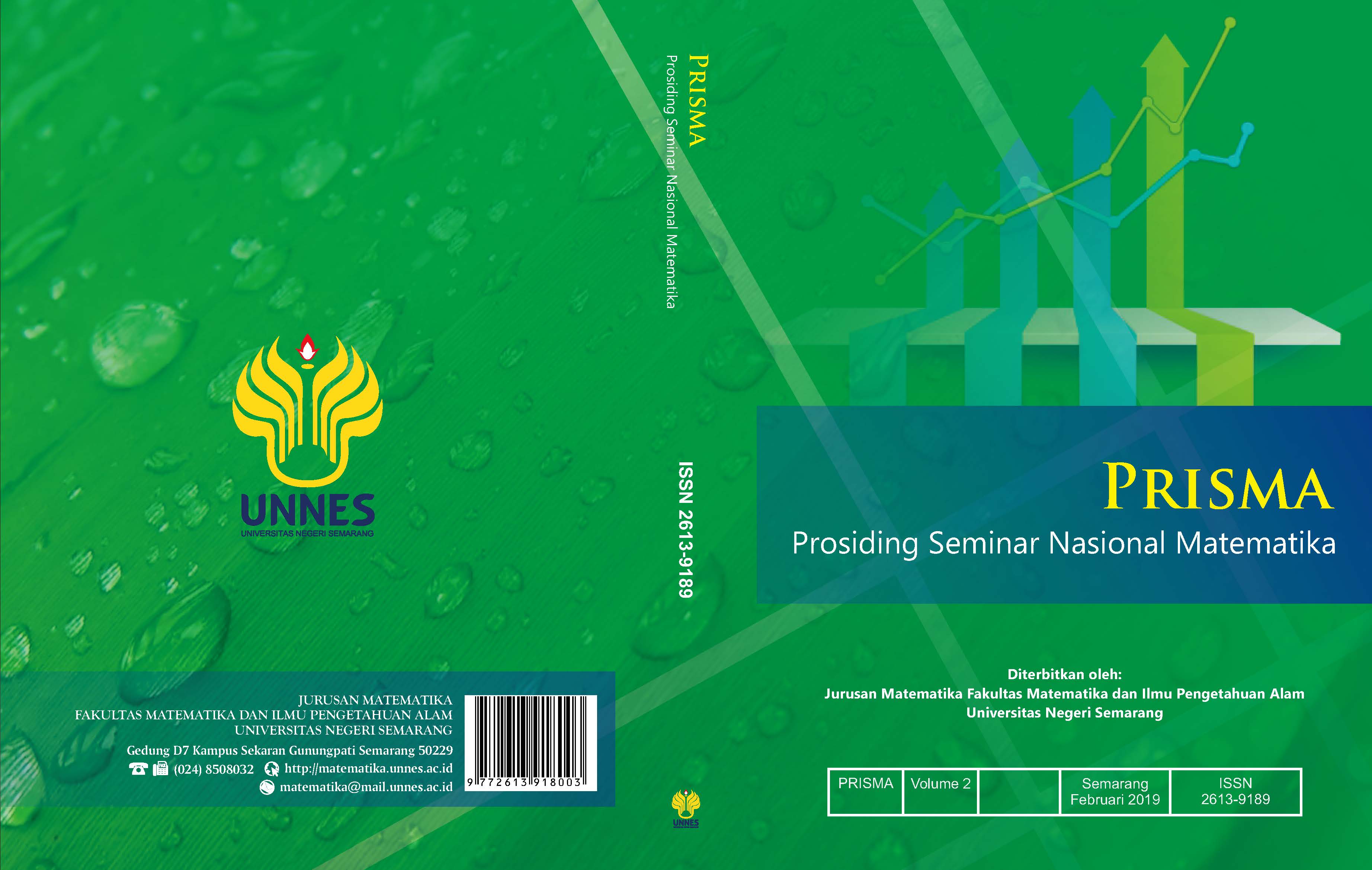Peningkatan Kemampuan Pemecahan Masalah Matematika Siswa Melalui Model Pembelajaran Fostering Communities of Learners
Main Article Content
Abstract
Pendidikan matematika kontemporer berfokus pada pemikiran dan kerja matematis. Matematika mendorong siswa berpikir dan bekerja secara matematis melalui keterlibatan siswa dengan tugas, masalah, dan investigasi. Salah satu kategori berpikir dan bekerja secara matematis adalah pemecahan masalah. Pemecahan masalah menyiratkan suatu proses di mana siswa menggabungkan elemen pengetahuan, teknik, keterampilan dan konsep yang sudah dimiliki untuk diterapkan pada penyelesaian masalah yang bersifat tidak rutin. Kegiatan utama model pembelajaran Fostering Communities of Learners (FCL) adalah aktivitas penelitian yang berfokus pada keaktifan diri dan lingkungan belajar yang reflektif. FCL mendukung siklus kegiatan research-share-perform. Pembelajaran model FCL diharapkan mampu meningkatkan kemampuan pemecahan masalah matematika siswa.
Article Details
References
Akinmola, E. A. (2014). Developing mathematical problem solving ability: a panacea for a sustainable development in the 21st century. International Journal of Education and Research, 2(2), 1-8.
Anni, C. T. & Rifai, A. (2009). Psikologi Belajar. Semarang: UPT Unnes Press.
Boersma, A., Ten Dam, G., Wardekker, W., & Volman, M. (2016). Designing innovative learning environments to foster communities of learners for students in initial vocational education. Learning Environments Research, 19(1), 107-131.
Brown, A. L., & Campione, J. C. (1994). Guided discovery in a community of learners. In K. McGilly (Ed.), Classroom lessons: Integrating cognitive theory and classroom practice (pp. 229–270). Cambridge, MA: MIT Press Bradford Books.
Çelik, H. C. (2018). The Effects of Activity Based Learners on Sixth Grade Students’ Achievement and Attitudes towards Mathematics Activities. EURASIA Journal of Mathematics, Science and Technology Education, 14(5), 1963-1977.
GarcÃa-Carrión, R., & DÃez-Palomar, J. (2015). Learners communities: Pathways for educational success and social transformation through interactive groups in mathematics. European Educational Research Journal, 14(2), 151-166.
Guven, B., Aydin-Guc, F., & Ozmen, Z. M. (2016). Problem Types Used in Math Lessons: The Relationship Between Student Achievement and Teacher Preferences. International Journal of Mathematics Education in Science and Technology, 47(6), 863-876.
Ehrlick, S. P., & Slotta, J. D. (2017). The Impact of a Collaborative Knowledge Base on a Fostering Communities of Learners model in Post-Secondary Large Lectures.
English, L. D. & Gainsburg, J. (2015). Problem Solving in a 21st-Century Mathematics Curriculum dalam Kirshner, David (Eds.). (2015). Handbook of International Research in Mathematics Education [3rd Ed.]. Taylor and Francis: New York.
Karatas, I., & Baki, A. (2017). The effect of learning environments based on problem solving on students’ achievements of problem solving. International Electronic Journal of Elementary Education, 5(3), 249-268.
Langer-Osuna, J. M. (2016). The Social Construction of Authority Among Peers and Its Implications for Collaborative Mathematics Problem Solving. Mathematical Thinking and Learning, 18(2), 107-124,
Montague, M., Krawec, J., Enders, C., & Dietz, S. (2014). The effects of cognitive strategy instruction on math problem solving of middle-school students of varying ability. Journal of Educational Psychology, 106(2), 469.
Moser, L., Berlie, H., Salinitri, F., McCuistion, M., & Slaughter, R. (2015). Enhancing academic success by creating a community of learners. American journal of pharmaceutical education, 79(5), 70.
Orton, A. (2004). Learners Mathematics: Issues, Theory and Classroom Practice. Caseel: University of leeds Centre for Studies Science and Mathematics Education.
Said, N. S. & Ghani, S. A. (2008). Teaching Mathematics in Secondary Schools: Theories and Practices. Malaysia: Universiti Pendidikan Sultan Idris.
Weiss, M. J., Visher, M. G., Weissman, E., & Wathington, H. (2015). The impact of learning communities for students in developmental education: A synthesis of findings from randomized trials at six community colleges. Educational Evaluation and Policy Analysis, 37(4), 520-541.
Zevenbergen, R., Dole, S. & Wright, R. J. (2004). Teaching Mathematics in Primary Schools. Australia: Allen & Unwin.
